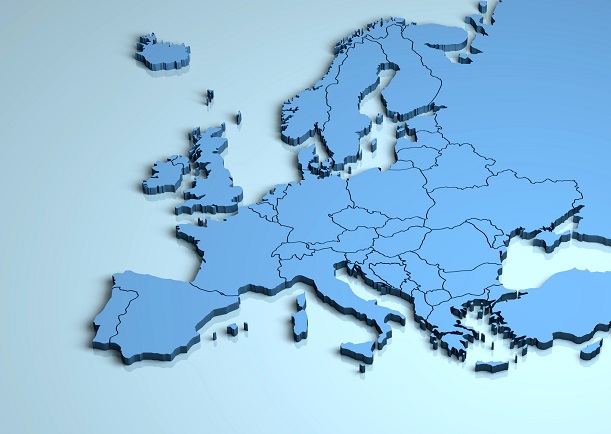The larger than previously predicted growth, in manufacturing too, is due to the greater need for automation and compliance with social distancing in response to COVID-19.
Prior to the COVID-19 pandemic, International Data Corporation’s (IDC) Worldwide Artificial Intelligence Spending Guide forecast artificial intelligence (AI) spending in Europe would be $10 billion for 2020, with a growth of 33% compound annual growth rate (CAGR) throughout 2023.
Pandemic effects
The new report, What is the Impact of COVID-19 on the European IT Market? (IDC #EUR146175020, April 2020) analysts assessed the impact of COVID-19 across 181 European companies and found that, as of March 23, 16% of European companies believe automation through AI and other emerging technologies can help them minimize the impact of COVID-19.
With large scale lockdowns in place, a shortage of workers and supply chain disruptions will drive automation needs across manufacturing.
“On the other hand, AI…can play a significant role in helping businesses and societies deal with and solve large scale disruption caused by quarantines and lockdowns. Of all industries, the public sector will experience an acceleration of AI investments,” said Andrea Minonne, Senior Research analyst at IDC Customer Insights & Analysis.
He added, “Hospitals are looking at AI to speed up COVID-19 diagnosis and testing and to provide automated remote consultations to patients in self-isolation through chatbots. At the same time, governments will use AI to assess social distancing compliance.”
AI enables automation
IDC’s argument is that applying intelligence to automate processes is a crucial response to the COVID-19 crisis. That would allow European companies to digitally transform, but also to make prompt data-driven decisions and have a positive impact on business efficiency.
This is expanded by Karl Bream, Vice President of Corporate IoT Strategy at Nokia, in a new blog [about 5G]: “We’ve seen how some companies have switched from making scents to sanitizer, sneakers to N95 masks, and F1 cars to respirators. These are important transitions – but they take time to implement. And while time in business is a valuable commodity, in a health crisis, it’s a vital one.
“5G [can] give connected enterprises the flexibility and adaptability that provides the gift of time. With 5G the digitalization of industries will reduce time to design and build, as well as the agility to change production in line with Industry 4.0. A connected enterprise has flexibility to quickly retool and change systems on demand.”
Faster healthcare
IDC expects a surge in adoption of automated COVID-19 diagnosis in healthcare to speed up diagnosis and save time for both doctors and patients. As the virus spreads quickly, labour shortages in industries where product demand is surging can become a critical problem.
For that reason, companies are rethinking their hiring processes, applying a mix of intelligent automation and virtualisation to them, said IDC. Companies will also aim to automate their supply chains, maintain their agility and avoid production bottlenecks, especially for industries with vast supplier networks.
With customer service centres becoming severely restricted, automation will be a crucial part for remote customer engagement and chatbots will help customers in self-isolation get the support they need without having to wait a long time.
“As a short-term response to the COVID-19 crisis, AI can play a crucial part in automating processes and limiting human involvement to a necessary minimum,” said Petr Vojtisek, research analyst at IDC Customer Insights & Analysis. “In the longer term, we might observe an increase in AI adoption for companies that otherwise wouldn’t consider it, both for competitive and practical reasons.”


